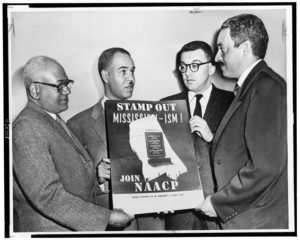“These contemplative and searching tones constitute the main spirit with which Hartog offers his reflections on Hurst. This same spirit, we hope, informs the way we offer this brief forum on Hartog’s piece. “ -Gautham Rao [Ed. Note: The following reflections reintroduce Professor Hendrik Hartog’s recently published piece, “Four Fragments on Doing Legal History, or Thinking with…
Issue: Volume 5, Issue 1

Risa Goluboff: Response to Dirk Hartog’s “Four Fragments” In a Flow Chart and Three Venn Diagrams
After reading “Four Fragments,” I returned to the journal I kept as a requirement of Dirk’s course. There, in the very first entry dated February 6, 1998, I had memorialized that first encounter with Hurst. -Risa L. Goluboff There is something very meta about an article in which Hartog reflects on Hurst reflecting on Holmes…
Mark V. Tushnet: Response to Dirk Hartog’s Four Fragments
Dirk Hartog’s “Four Fragments on Doing Legal History,” reflecting on the past fifty years or so of U.S. legal history and on the role and legacy, if any, of Willard Hurst, provokes me to similar though briefer and less well-developed reflections – especially because I began my career in the Hurst/law-and-society era at the University…
Mia Brett: “Peculiar Jews: The Trial of Pesach Rubenstein and Antisemitism in Late Nineteenth-Century New York”
On February 1, 1876 the trial of Pesach Rubenstein for killing Sarah Alexander began. Both Pesach Rubenstein and Sarah Alexander were Yiddish speaking Eastern European Jewish immigrants. The police investigation and following trial showed a system ill equipped to provide justice or a fair trial to people who spoke Yiddish, ate kosher food, testified under…
Anthony W. Orlando–How Racial Discrimination Persists Legally: Redlining as Policy vs. Redlining as Philosophy
On April 11, 1968, the official government policy of “redlining” came to a definitive legal end. Contained within Title VIII of the Civil Rights Act, signed into law by President Lyndon B. Johnson, was a clear instruction to banks and other lenders not to discriminate on the basis of “race, color, religion, or national origin.”[1] In…
Bruce W. Dearstyne: New York’s Court of Appeals and Progressive Reform
Editor’s Note: Bruce W. Dearstyne’s latest book, The Crucible of Public Policy: New York Courts in the Progressive Era (SUNY Press, 2022), will be published in early 2022. Below, he discusses some of the key ideas in the book. New York’s Court of Appeals and Progressive Reform: Judicial Statesmanship in Action New York State’s highest court,…

